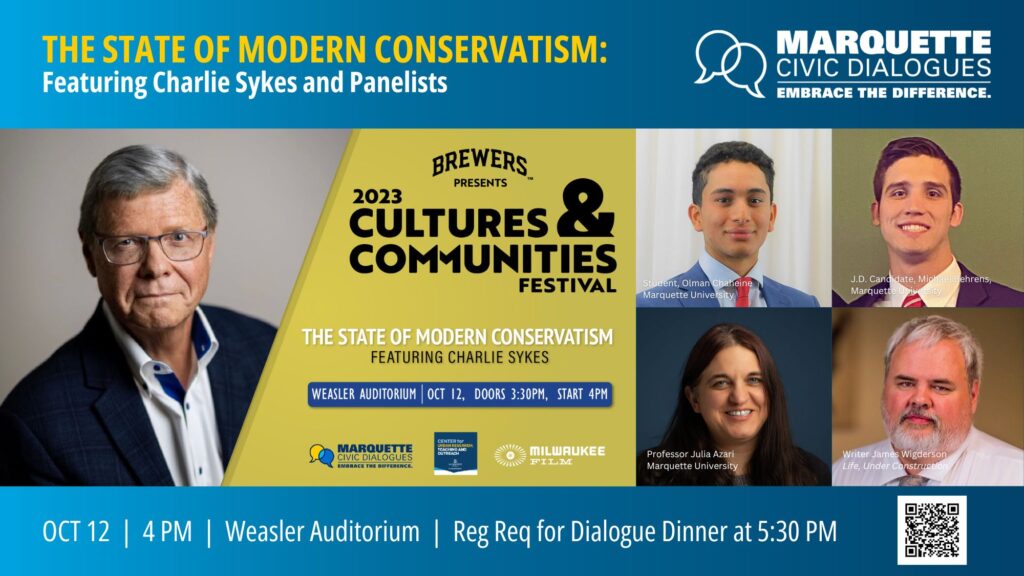
Charlie Sykes, political commentator and editor-in-chief of The Bulwark, will lead an insightful discussion on a range of topics pertinent to conservatism and Republican constituents during “The State of Modern Conservative Politics,” a panel event co-hosted by Marquette Civic Dialogues Program and MKE Communities & Cultures FilmFest on Thursday, Oct. 12, at 4 p.m. at the Weasler Auditorium.
With the Republican National Convention set to take place in Milwaukee in July 2024, there is no better time to delve into the current state of local and national Republican politics. Sykes, a GOP diagnostician, will be joined by panelists representing a broad set of perspectives, including:
- Dr. Julia Azari, professor of political science at Marquette
- Michael Behrens, student in Marquette Law School and president of the Marquette Federalist Society
- Olman Chaheine, an undergraduate student and president of the Marquette College Republicans
- James Wigderson, political columnist and former editor and publisher of RightWisconsin
Registration is free and available online.
The panel discussion will be followed by a Dialogue Dinner with limited capacity, providing an opportunity for students and members of the public to continue this conversation over dinner in a smaller setting. Guided by trained student facilitators, attendees will be able to engage in both civic and civil dialogue, with the opportunity to share and listen to multiple perspectives and address some of the most difficult topics facing the country today.
An option to register for the dinner will be available on the main registration page.
The Marquette Civic Dialogues Program works to foster deliberation about the pressing issues facing our world today, prepare students to be citizens with purpose and advance scholarship on the individual and collective benefits of civic dialogue. Through its programming and research, Civic Dialogues encourages students to “Be the Difference” by engaging differences in political thought and lived experience.


